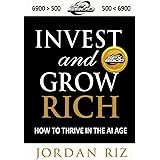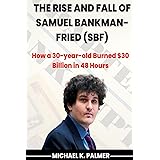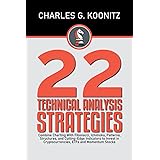The Best Way to Invest Money in 2025: Building True Wealth, Not Chasing Hype
Many people dream of financial freedom, wanting a way out of the daily grind and the constant worry of paychecks. We often imagine striking it rich quickly, perhaps by finding that one stock or cryptocurrency that will skyrocket overnight. This desire is powerful, tempting us with visions of instant wealth and an end to our financial struggles. However, as the insightful video above explains, this often leads us down a dangerous path: speculation rather than true investing. There is a right way to invest money and a wrong way, and understanding the difference is crucial for securing your financial future.
The speaker in the video shares a personal story, admitting that in his twenties, his “brilliant strategy” was to find a single stock offering “life-changing results.” He, like many others, believed hitting it big in the stock market was his only hope to escape the “rat race.” This mindset is common. People dedicate countless hours to researching, following market trends, and listening to self-proclaimed online experts, all in pursuit of that one “hidden gem.” But what often happens is a crushing reality: this isn’t investing; it’s speculating.
The Allure of Quick Riches: Why Many Fall for Speculation
The promise of quick wealth holds immense appeal. It taps into our desire for immediate gratification and our hope for a better life. When you work a modest-paying job and feel stuck, the stock market or the crypto world can seem like a ticket to freedom. You might tell yourself, “Why waste time slowly building wealth when I can just find the right stock and shortcut the whole process?” This sentiment is precisely what leads many down the speculative rabbit hole.
This pursuit often stems from a genuine belief that a single, massive win is the only escape from slow, steady progress. It’s an emotional drive. This drive can make logical advice, like investing safely into an index fund, seem boring or insufficient. The hope tied to a speculative pick feels far more exciting than the slow, methodical climb of true investing. People often feel that if they stop trying to “get rich” with risky assets, they kill their hopes and dreams. This emotional attachment blinds them to the fundamental differences between growing money steadily and gambling with it.
Investing vs. Speculating: Understanding the Fundamental Difference
The speaker makes a critical point: there’s a huge difference between investing and speculating. This may seem obvious to seasoned investors, but for beginners, or those blinded by hope, it’s a distinction easily missed. Grasping this concept is the first step toward building real wealth and securing your financial future.
What is True Investing?
True investing focuses on growing your money steadily and safely over time. It involves putting capital into assets that have a proven track record of wealth generation, with a clear expectation of long-term results. Think of it as planting a tree and nurturing it to grow strong and provide fruit for years to come. Key characteristics of genuine investing include:
- Long-Term Focus: Investors hold assets for years, often decades, allowing time for compounding to work its magic.
- Lower Risk: While no investment is entirely risk-free, true investing prioritizes mitigating risk through diversification and sound decision-making.
- Based on Fundamentals: Investment decisions rely on thorough analysis of a company’s financial health, industry outlook, and management, or the broad performance of an entire market.
- Diversification: You spread your money across various assets, industries, or geographic regions to minimize the impact of any single underperforming investment.
- Compounding Growth: Your earnings generate further earnings, creating an exponential growth effect over time.
Examples of true investing include putting money into a diversified portfolio of index funds, purchasing income-generating real estate, or buying high-quality, dividend-paying stocks as part of a balanced portfolio. This is how you truly invest money for the future.
What is Speculation?
In contrast, speculation is akin to gambling. It’s a high-risk, high-reward approach driven by the hope of quick profits from short-term market fluctuations. Speculators aim to profit from hype, rumors, or gut feelings, often with little regard for an asset’s underlying value. It’s like betting on a horse race rather than owning a share of the racetrack. Characteristics of speculation include:
- Short-Term Focused: Speculators buy and sell assets quickly, trying to capitalize on rapid price changes.
- High Risk, High Reward: The potential for massive gains is often accompanied by an equally high risk of significant losses.
- Based on Hype or Rumors: Decisions are frequently influenced by social media trends, news headlines, or “inside tips” rather than solid financial data.
- Little to No Diversification: Speculators often concentrate their money into a few, highly volatile assets, hoping for a big win.
- Extremely Volatile: The value of speculative assets can swing wildly in short periods, leading to unpredictable outcomes.
Common examples include trading penny stocks, betting on new, unproven cryptocurrencies, or chasing “meme stocks” solely because they are trending. While some individuals do get rich this way, the vast majority experience significant losses. Relying on speculation to build wealth is not a sound strategy; it’s more akin to playing the lottery.
The Power of Diversified, Reliable Funds: Your Best Bet
If you’re wondering how to invest money wisely, the best approach is surprisingly simple: invest in a diverse and reliable fund. The speaker specifically recommends an S&P 500 index fund or ETF. This choice is not exciting, but it is effective.
An index fund is a type of mutual fund or exchange-traded fund (ETF) that holds a diversified portfolio of securities designed to match or track the components of a market index, such as the S&P 500. The S&P 500 tracks the performance of 500 of the largest publicly traded companies in the United States. When you invest in an S&P 500 index fund, you are essentially buying a tiny piece of all those 500 companies. This provides immediate diversification across many industries and businesses.
Why is this such a good strategy? The S&P 500 has a robust long-term track record. Historically, the S&P 500 has delivered an average annual return of approximately 10-12% over many decades. While past performance doesn’t guarantee future results, it demonstrates the power of investing in a broad market index. You avoid the stress of picking individual winners and losers, and instead, you benefit from the overall growth of the U.S. economy.
These funds are also typically low-cost, meaning more of your money goes towards growing your wealth rather than paying fees. This passive approach beats actively managed funds for many investors over the long haul. It allows your money to accumulate and compound, transforming small, consistent contributions into substantial wealth over time.
Systematic Investing: Consistency is Key
The speaker advises investing “methodically and systematically.” This means establishing a consistent routine for your investments. The most effective way to do this is through a strategy called Dollar-Cost Averaging (DCA).
Dollar-Cost Averaging involves investing a fixed amount of money at regular intervals, regardless of whether the market is up or down. For example, you might decide to invest $100 every month into your chosen S&P 500 index fund. When the market is high, your fixed amount buys fewer shares. When the market is low, the same amount buys more shares. Over time, this strategy helps average out your purchase price, reducing the risk of buying all your shares at a market peak. It also removes emotion from the investment process, helping you avoid trying to “time the market,” which is nearly impossible to do consistently.
Where should you put this money? Prioritize tax-advantaged accounts first. Retirement accounts like a 401(k) through your employer or an Individual Retirement Account (IRA) offer significant tax benefits that accelerate wealth growth. After maximizing those, a standard brokerage account is an excellent option for additional investments. The key is to start, even if it’s a small amount. Time truly flies, and those consistent contributions build up faster than you might imagine, thanks to the power of compounding.
Beyond the Stock Market: Other Proven Investment Avenues
While the stock market, especially through index funds, is a popular and accessible way to invest money, it’s not the only avenue. The principles of conservative, proven investments apply across various asset classes. The speaker mentions that he personally invests in real estate, highlighting its long-term potential over hyped fads like “Cabbage Patch Kids or Beanie Babies or NFTs.”
Consider these other avenues that align with a long-term, wealth-building approach:
- Real Estate: Investing in physical property, whether residential or commercial, can provide rental income and long-term appreciation. It can also serve as a hedge against inflation. Successful real estate investing, like stock market investing, typically requires a long-term mindset and often involves active management or careful selection of passive real estate investments.
- Bonds: These are essentially loans made to governments or corporations, which pay interest to the investor. Bonds are generally considered lower-risk than stocks and can provide a stable income stream, making them a good option for diversifying a portfolio and reducing overall volatility.
- High-Yield Savings Accounts & CDs: While not providing the same growth potential as stocks or real estate, these are excellent for short-term savings, emergency funds, and money you cannot afford to lose. They offer guaranteed (though modest) returns and protect your capital.
The common thread among these examples is their proven track record, their focus on generating consistent returns, and their role in a diversified financial plan. Avoid chasing the latest “fad” or get-rich-quick scheme. Focus instead on assets that generate value and grow over time, allowing you to invest money securely.
Managing Your Urge to Speculate: A Balanced Approach
It’s natural to want “results NOW.” The desire for immediate gratification is a strong human instinct, and it’s okay to acknowledge that urge. The speaker understands this and offers a pragmatic solution: if you want to have fun with speculating in stocks, crypto, or even playing the lottery, go for it – but in moderation.
There’s no magic rule for how much you should limit speculation to, but a common recommendation is to allocate only a small, fixed percentage of your total investment portfolio to these high-risk activities – perhaps 2%, 5%, or a maximum of 10%. Crucially, this should be “fun money” or “play money” that you can comfortably afford to lose without impacting your core financial goals or security. The vast majority of your wealth-building capital must remain in diversified, long-term investments. This balanced approach allows you to satisfy that urge for excitement without jeopardizing your financial future. It lets you participate in the potential upside of speculative assets while primarily relying on proven strategies to invest your money.
Start Now, Grow Steadily: The Path to True Financial Freedom
The core message is clear: rely on investing to build your wealth, not speculation. “Slow and steady wins the race” applies perfectly to financial success. The most impactful advice is to simply get started now. Even if you can only begin with a small amount, perhaps $50 or $100 each month, the power of compounding over time is truly remarkable. Time is your greatest asset in investing, and the sooner you begin, the more time your money has to grow.
Don’t be wild and risky with money you’ve worked hard for and will rely on in the future. Embrace the steady accumulation that comes from consistently putting your money into reliable, diversified assets. Make a plan to systematically invest your money, whether it’s into an S&P 500 index fund or a conservative real estate venture. Your future self will thank you for making the wise choice to prioritize long-term growth over fleeting hype.







